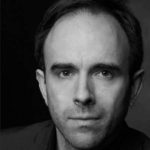About The Film
Director's Statement
I discovered “Princes of the Yen” by accident whilst browsing for books on Japanese history and economics. It looked sufficiently interesting that I paid £30 pounds for it. I soon realized that this was no ordinary book on economics or central banks, but a very well written historical account of the Bank of Japan and the Japanese economic system, which offers not only a wealth of technical detail, but also meticulously dissects the personalities involved.
It is not often that as a filmmaker you come across something that you feel is so uniquely important. The implications of the theory Richard Werner puts forward are truly earth shattering, yet hardly anyone is listening. I say hardly anyone, because conversely, he has advised various politicians, governments and their parliaments. It was the general public who weren’t listening. This film is an attempt to rectify that situation.
This film has been two and a half years in the making, the barriers to its completion have been significant, so too have the number of events that can only be termed highly unusual. Was someone trying to tell us something? Or were these just unfortunate coincidences?
“Free market” capitalism is the religion of the 21st century, and as such it should not come as a surprise that its foundations rest on a series beliefs. To challenge these beliefs is to challenge the validity of the system and its beneficiaries.
In the words of one Japanese central banker, “it is not easy to change the institutional frame work and promote structural reform, since it necessarily involves the vested interests of all the related individual economic agents.”
Contact: contact@independentpov.org
Support the filmmaker on Patreon: https://www.patreon.com/independentdocumentary

Prof. Richard Werner
Richard’s book ‘Princes of the Yen’ became a no. 1 bestseller in Japan. His 2005 book ‘New Paradigm in Macroeconomics’ (Palgrave Macmillan) correctly predicted the collapse of the UK banking system and property market, highlighted the problem of ‘recurring banking crises’ and suggested workable solutions.
Some of Richard’s work featured prominently in the financial press, attracting interest, among others, from Alan Greenspan. Richard has frequently appeared on Japanese and international TV commenting on economic and financial affairs. In 2003, the World Economic Forum selected him as ‘Global Leader for Tomorrow’ in Davos.
In 1989, Richard graduated in International and Development Economics from the London School of Economics and entered the graduate programme in Economics at Oxford University. In 1990, he joined the Graduate School at the University of Tokyo and became a researcher at the Nomura Research Institute. In the following year, he became European Commission-sponsored Marie Curie Fellow at the Institute for Economics and Statistics, University of Oxford, to conduct doctoral studies on monetary economics and banking in Japan. In subsequent years Richard became the first Shimomura Fellow at the Research Institute for Capital Formation at the Japan Development Bank (now Development Bank of Japan), a Visiting Researcher at the Institute for Monetary and Economic Studies at the Bank of Japan, and Visiting Scholar at the Institute for Monetary and Fiscal Studies at the Ministry of Finance, Tokyo. In 1994, Richard took up the position of chief economist at Jardine Fleming Securities (Asia) Ltd., in which function his market forecasting activities earned him high rankings in investor surveys (Institutional Investor, Greenwich, Japanese Economist). In 1997, Richard joined the faculty of Sophia University, Tokyo, to teach Money and Banking and International Finance. In 1998, he left Jardine Fleming and set up a consulting firm, Profit Research, which conducts macroeconomic research and market forecasting on 37 countries. In 2000, he became tenured Assistant Professor of Economics, teaching Development Economics, International Economics and Monetary Economics. He has worked for several years as senior staff consultant of the Asian Development Bank, Manila, including as Team Leader of a country study on the Asian crisis. Richard has been advisor to the ruling Japanese Liberal Democratic Party’s Central Bank Reform Research Group and served on several Ministry of Finance advisory panels. From 2000 to 2003 Richard was a member of the asset allocation committee of one of the largest Japanese pension funds. He has over a decade of experience in advising international investors and hedge funds on investment strategy.
Richard Werner’s twitter link: https://twitter.com/scientificecon
Production Team

Director/Producer/Writer Michael Oswald
His documentaries have been viewed in over 150 countries, they have screened at the London Frontline Club, the Royal Society of the Arts and at festivals, cinemas, broadcasters, galleries and universities on 6 continents.
His previous documentaries include The Man Who Knew Too Much (2020) about an intelligence service whistle blower who was framed for a murder. The Spider’s Web (2017) about Britain’s transformation from an imperial power to the global leader in offshore finance. Princes of the Yen (2014) a film on Japan’s bubble economy.
Associate Producer
Michael Horwath
Inspired by the popularity of underground documentaries Mike saw an opportunity to create a new way of producing and distributing documentary films.
Working in the technology industry as a producer/project manager Mike was able to use this knowledge to create a platform and approach to film making that would not immediately require the tradition routes of documentary filmmaking. The goal was to produce, publish and distribute content regardless of financial reward or industry recognition.
Since forming Queuepolitely Mike has worked on numerous documentaries taking up roles as and where needed from conducting interviews, writing scripts, producing and promoting.
Mike has always viewed the world from a slightly different perspective leading to interesting discussions with colleagues, friends and relatives. Queuepolitely has provided a platform to articulate and discuss these perspectives with similar minded people.

Narration
Andrew Piper
Trained: Bristol Old Vic Theatre School (BOVTS)
Theatre includes Yes, Prime Minister (West End), John (‘Jack’) Profumo in Keeler (No. 1 Tour), George in Same Time, Next Year (Esk Valley Theatre),
Comedy of Errors &Importance of Being Earnest (Oxford Shakespeare Company), Herbert Pocket in Great Expectations (NTC), Hamlet in Rosencrantz & Guildenstern are Dead (Jersey Opera House), Phileas Fogg in a musical version of Around the World in Eighty Days (Lyric Theatre, Hong Kong), Banquo in Macbeth (Bridge House Theatre, Warwick), Richard Burbage in Will(Tristan Bates), The Cardinal in The Duchess of Malfi (New Players Theatre) and Shylock inThe Merchant of Venice (BOVTS).
Roles with various repertory companies include: Bryan Snow in Star Quality, Bob Philips inHow the Other Half Loves, and John Terry in Who Killed ‘Agatha’ Christie?
Voice work includes the narration for ‘Titanic: 100 Years in 3D’ for History Channel/Sky, commercial voiceovers for Magnum ice-cream, Martini Rosato, and Cancer Research, and various recordings for the BBC, most recently the voice of John Milton for BBC America/PRI’s The World programme.

Music
Matthew Swinerton
Buro is a collaboration between media composer and sound designer Marc Sylvan and former Rakes guitarist and songwriter Matthew Swinnerton. Taking their cue from the synth led film scores of John Carpenter and the spectral guitar sound of bands like The Durutti Column they interweave drone textures with haunting guitar melodies.
Music
Antonymes
Antonymes music emerges from the adjustments and erasures of ambient, the pace and persistence of minimalism, where music expresses nothing but itself, from the serenity and austerity of Morton Feldman and the profound prettiness of Harold Budd, from the relationship between continuity and repetition rather than of contract and interplay, from secrecy, from quietness, from pause, from thought, from emptiness, from time, from far off, from itself, from where it is set and where it is setting off to.